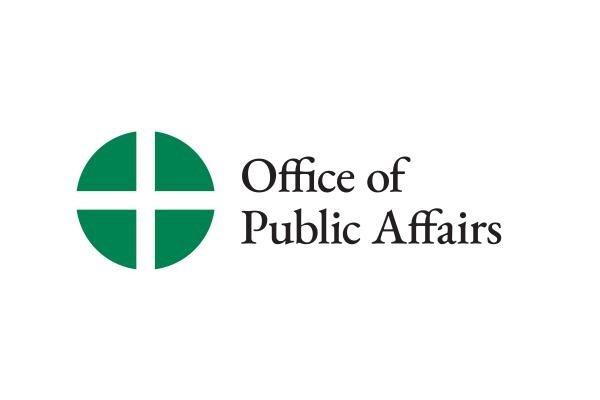Methodist-Catholic Dialogue Looks at Environment, Eucharist
WASHINGTON— Scholars from the Catholic Church and the United Methodist Church (UMC) discussed the relationship between the environment and Eucharist at the fourth session of the seventh round of the Catholic-Methodist dialogue, June 28-30, in Washington.
WASHINGTON— Scholars from the Catholic Church and the United Methodist Church (UMC) discussed the relationship between the environment and Eucharist at the fourth session of the seventh round of the Catholic-Methodist dialogue, June 28-30, in Washington.
Bishop Timothy W. Whitaker, of the UMC Florida Conference, co-chaired the dialogue with Bishop William S. Skylstad of Spokane, Washington, past president of the United States Conference of Catholic Bishops (USCCB).
Both bishops highlighted the shared world view that emerges from the Eucharistic traditions of their churches and said it is relevant to today’s ecological crisis in the Gulf of Mexico.
“In our dialogues and final report we hope to help fellow congregants see how our public worship, particularly the Eucharist, shapes us to see God’s glory in creation and to care for the creation as faithful stewards,” Bishop Whitaker said.
Round 7 has convened liturgists and ethicists to study caring for God’s creation. The fourth session focused on sacramentality, liturgical memory, and reading the signs of the times as environmentally attuned Christians.
Monsignor Kevin W. Irwin, dean of the School of Theology at The Catholic University of America, began the session by examining the fundamental language of Eucharistic celebration.
“The very preparation of, taking, blessing, breaking, and giving [bread], imply work and communal responsibility to share all of the earth’s resources with all on the earth, lest we rape the world and leave it devastated for the next generation,” Irwin said.
Msgr. Irwin affirmed Church’s doctrine of the Real Presence of Christ in the species of bread and wine and said the manufacturing and eating of food belongs to the heart of Christian worship. The Eucharist rightly understood, he said, “reveres the means of production in terms of human ingenuity and it reveres food as the gift of the God of creation and redemption.”
Karen Westerfield-Tucker, Ph.D., Boston University, noted strong Methodist (or “Weslyan”) agreement with Irwin’s paper, especially the concept that liturgical symbols like water, fire and wheat retain their essence as natural and manufactured goods.
“Precisely as symbols which occasion the act of blessing God, these things become more truly what they are natively — bearers of God’s presence and images of God’s own goodness,” she said.
Another presentation on the themes of creation and redemption drew on ancient Christian commentaries. Angela Christman, Ph.D., Loyola University, Baltimore, noted that for early church Fathers like St. Augustine the human activity of producing bread, a gift of creation, mirrors the transformation of worshipers at the Eucharistic liturgy. She cited a fifth century sermon of Augustine to the newly baptized of his cathedral.
“Afterward you came to the water, and you were moistened into dough, and made into one lump, she said, citing Augustine. With the application of the heat of the Holy Spirit you were baked, and made into the Lord’s loaf of bread.”
Jesuit Father Drew Christiansen, editor of America magazine, looked at ecology’s ethical considerations and explored how recent popes have understood the “signs of the times” when reflecting on such challenges as climate change, deforestation, and impending conflicts over water resources. While popes have made use of both metaphysical and empirical methods in advancing Catholic social teaching, they concur that authentic human development cannot take place without conscious attention to the environment. Pope Benedict XVI argues that ecological responsibility and “human ecology”—the defense of human life and dignity—are inseparable.
During the deliberations dialogue members noted the Gulf crisis and other environmental issues in the headlines since they met at the end of 2009.
Other participants in the dialogue included Edgardo Colon-Emeric, Ph.D., Duke University School of Divinity; Rev. Betty Gamble, Acting Ecumenical Officer for the UMC; Connie Lasher, Ph.D., visiting scholar at Santa Clara University, California; Father James Massa, Executive Director of the Secretariat for Ecumenical and Interreligious Affairs, USCCB; L. Edwards Phillips, Ph.D., Emory University’s Candler School of Theology, Atlanta; and Sondra Wheeler, Ph.D., Wesley Theological Seminary, Washington.
The next meeting of the dialogue is slated for December 14-16, 2010, in Washington.

